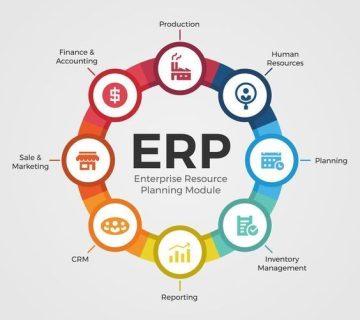Introduction
In today’s fast-paced tech arena, small tech businesses must swiftly adapt to emerging trends and innovations. The technological landscape is in a constant state of flux, shaping the way businesses operate. Staying ahead of these shifts is critical for small tech enterprises. This article sheds light on the rapid changes in technology and how they directly affect small tech businesses. Understanding and embracing these dynamics can mean the difference between success and obsolescence in the competitive tech world. We will delve into the impact of these changes and the urgency they impose on small tech businesses to adapt and innovate.
Adopting Cutting-Edge Technologies
Incorporating Artificial Intelligence (AI) and Machine Learning (ML)
Innovations like Artificial Intelligence (AI) and Machine Learning (ML) are propelling businesses into the future. AI and ML present unparalleled opportunities for small tech businesses to enhance their operations and improve customer experiences. Furthermore, integrating these technologies can elevate efficiency, automate routine tasks, and facilitate data-driven decision-making. The potential benefits of embracing AI and ML are vast, enabling businesses to stay competitive and adapt to evolving market demands. From predictive analytics to smart automation, AI and ML offer transformative capabilities that can drive growth and innovation within the tech industry.
Leveraging the Internet of Things (IoT) and connectivity
Leveraging the power of the Internet of Things (IoT) and Connectivity is crucial for small tech businesses aiming to future-proof their operations. IoT involves connecting devices and systems to the internet, enabling them to collect and share data. This integration facilitates the creation of smart, efficient ecosystems within businesses. Also, by utilizing IoT and connectivity solutions, small tech businesses can significantly improve efficiency and optimize processes. Devices and systems can communicate seamlessly, streamlining operations and enhancing productivity.
Furthermore, the integration of IoT provides the ability to collect valuable data, offering insights that can drive informed decision-making. Businesses can gain a deeper understanding of customer preferences, market trends, and operational performance. This wealth of data allows for more targeted strategies, ultimately leading to better services and products.
Moreover, embracing IoT and connectivity can open doors to new services and revenue streams. Businesses can innovate and offer solutions that were previously not possible without these technologies.
Implementing Blockchain Technology
Integrating Blockchain Technology is a pivotal move for small tech businesses aiming to future-proof their operations. Blockchain, a decentralized and distributed digital ledger, revolutionizes how data and transactions are managed and secured. This technology ensures a high level of security and transparency, making it an ideal solution for various business operations.
Blockchain’s potential applications are vast and can significantly enhance security within small tech businesses. Transactions conducted on a blockchain are secured through encryption and distributed across a network of computers, making it extremely difficult for malicious actors to tamper with data. This heightened security is particularly vital in industries where data integrity and trust are paramount.
Furthermore, blockchain introduces a new level of transparency and traceability to business processes. Transactions recorded on a blockchain are immutable, providing a clear, auditable history. This feature can enhance trust among stakeholders and customers, a vital element for the growth and reputation of a business.
Embracing Cybersecurity Measures
In the ever-evolving tech landscape, Embracing Cybersecurity Measures is a critical step to future-proof small tech businesses. Cybersecurity, the protection of digital systems, networks, and data from theft, damage, or unauthorized access, is paramount in today’s technologically driven world.
Small tech businesses often underestimate the importance of robust cybersecurity, assuming they might not be a target. However, they are, in fact, lucrative targets for cyber-attacks due to potential vulnerabilities. Embracing cybersecurity is not merely an option but a necessity to safeguard business data, maintain customer trust, and ensure uninterrupted operations.
Implementing cybersecurity measures involves fortifying networks and systems, educating employees about potential threats, regularly updating security software, and employing encryption techniques to protect sensitive data. Furthermore, conducting regular security audits and assessments can identify vulnerabilities and areas for improvement.
Understanding the risks and staying informed about emerging cyber threats will enable these businesses to take proactive measures and mitigate potential risks effectively, ensuring a secure digital future for their operations and customers.
Harnessing Augmented Reality (AR) and Virtual Reality (VR)
In the rapidly advancing tech sphere, Harnessing Augmented Reality (AR) and Virtual Reality (VR) is more than an innovation; it’s a transformation. These immersive technologies, AR and VR, have transcended the realm of gaming and entertainment, emerging as powerful tools with vast potential for various industries, including small tech businesses.
AR overlays digital content onto the real world, enhancing user experiences and engagement. VR, on the other hand, creates a fully immersive digital environment. Together, they enable businesses to revolutionize product presentations, training modules, customer interactions, and more.
By adopting AR and VR, small tech businesses can elevate their product offerings, providing unique and interactive experiences to customers. From showcasing products in a virtual showroom to offering guided virtual training sessions, the applications are boundless.
Moreover, AR and VR can streamline remote collaborations and training, bridging geographical gaps and enabling a global workforce to interact seamlessly. They democratize high-quality experiences and training without the constraints of physical presence.
Conclusion
As the tech landscape evolves at an unprecedented pace, small tech businesses face a critical juncture. Pioneering Innovation and Future Success are intricately linked to their ability to adapt and adopt emerging technologies. The future of the tech industry is synonymous with constant innovation, making it imperative for small tech enterprises to be at the forefront of technological advancements.
Embracing technological trends isn’t just a strategic move; it’s a survival instinct in the competitive tech arena. Small tech businesses must proactively embrace innovation, incorporating cutting-edge technologies like AI, IoT, Blockchain, AR, and VR into their operations and product offerings. This proactive approach is the compass that guides them towards a future where success is tethered to innovation.
Staying ahead of the curve is not an option but a mandate. It’s about redefining paradigms, revolutionizing user experiences, optimizing processes, and securing data. Those who pioneer innovation and leverage these technological trends stand not only to survive but to thrive. The journey towards Future Success begins with this leap into the uncharted territories of technology, where possibilities are boundless, and the rewards are unparalleled.
In conclusion, we emphasize the significance of embracing innovation and technological trends as a fundamental strategy for small tech businesses. It’s not merely about navigating change; it’s about leading it, for the pioneers of today will be the success stories of tomorrow.
Contact Us Today!



